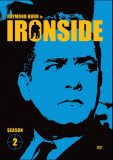| Reviews & Columns |
|
Reviews DVD TV on DVD Blu-ray 4K UHD International DVDs In Theaters Reviews by Studio Video Games Features Collector Series DVDs Easter Egg Database Interviews DVD Talk Radio Feature Articles Columns Anime Talk DVD Savant Horror DVDs The M.O.D. Squad Art House HD Talk Silent DVD
|
DVD Talk Forum |
|
|
| Resources |
|
DVD Price Search Customer Service #'s RCE Info Links |
|
Columns
|
|
|
Ironside - Season 2
Shout Factory will be releasing the second season of Ironside, the cagey detective series starring Raymond Burr as the famous paraplegic sleuth. I probably haven't seen Ironside since it originally ran on NBC in the late 60s and early 70s, but I recall it with great fondness, remembering it as a "thinking man's" detective series not unlike Columbo. It had action occasionally, but more often than not, the majority of the episodes would feature lengthy scenes of Burr's Ironside, coolly dispatching his reasoning from his wheelchair, as the criminals grimly realized they were trapped in his logic.
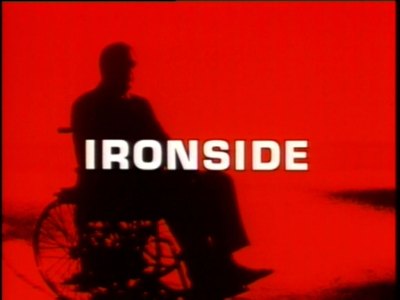
In other words, Ironside wasn't too far removed from Burr's previous TV incarnation, Perry Mason. Detailed, layered scripts would have Mason slowly build a case as he inexorably closed in on his prey, certain of a successful outcome. Ironside on the surface looks close to Perry Mason's format, but Burr brings to Ironside a stronger, more passionate - and certainly more doubtful - tone to the Ironside character. Gone is Perry Mason's low-key delivery and almost supernatural calmness as he filleted one criminal after another on the witness stand. Instead, Burr's Ironside, outwardly gruff and competent, is in reality a rather tortured figure.
Widowed years before his injury, the assassin's bullet that grazed his spine and permanently paralyzed him from the waist down only added to his emotional stress. I didn't get a chance to review the first season of Ironside, but in this second season, Burr is given many opportunities to show the torment he's undergoing, being confined to a wheelchair. In the two-parter, Split Second to an Epitaph, where Ironside is given small hope of recovery from his injuries, not only is Burr quite adept at getting across his character's frustration at being incapacitated, but also the inevitable acceptance he comes to when he realizes he will never get out of that wheelchair. I would imagine Burr's Ironside was television first disabled hero (or at least the first one to be featured in a major hit), and I remember quite distinctly as a boy the weight of that knowledge, in almost every episode, that he was permanently disabled. It added a level of gravity to the series that was most unusual for TV detective series at the time.
And in keeping with that gravity, Ironside's plots tried for a more contemporary feel, with stories focusing on racism, student politics on campuses, abortion, and drugs. While certainly there were more than its fair share of conventional heist and murder stories in this second season of Ironside, the series maintains an admirable contemporary tone for the times. As well, these stories are executed in that fairly anonymous but totally professional TV network style of the late 1960s that will be instantly recognizable to those fans who grew up on this kind of meat-and-potatoes television. Reading some of the reviews of Ironside's first season on DVD - many of those reviews from obviously younger reviewers - it was amusing to me to see how genuinely surprised they were at the quality of this series. Many of them took Ironside as some kind of distinct anomaly, but having grown up on this kind of TV, I can assure you it was the norm, not the exception.
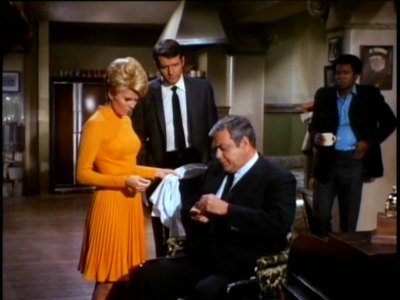
Watching Ironside: Season 2, I was also struck by the "Universal house style" that's also recognizable to fans of that era of TV. You can pick up on the same sets used in other contemporary series (I spotted several reused in Dragnet), along with that distinctly movie-quality cinematography that was a hallmark of the studio's TV efforts. While Ironside: Season 2 doesn't feature a lot of actual location work (much of the action, if you want to call it that, occurs on indoor sets or out on the Universal backlot), it does create a believable milieu for Ironside's activities. I have to say I was a tad disappointed in Ironside's famed van (I obviously remember it, incorrectly, as being somehow more...lavish or gadget-filled), but its gray, claustrophobic feel only heightens the same tone in the show; it's perfectly suited to the already confined Ironside, and with the series' reliance on close-ups and two-shots, perfectly mirrors the series' screwed-down-tight visual style.
Burr, a much underrated actor, is perfectly suited to play the gruff, pissed-off Ironside. Watching the character today, I was surprised at how often the producers let Ironside come off as abrasive or acerbic. At the time, it wasn't uncommon for images of the disabled in movies or TV to be cast in a pitying or pathetic light. Not so for Ironside. He positively hates his newly-found confinement, and he's going to let people know about it. He isn't smiling his way through the frustration; he's loud, and cutting, and he orders people around, whether they like it or not. Burr, whose "Q rating" was through the roof, was probably one of the few TV actors to be able to pull off such an ill-tempered character at that time. The rest of the cast fit their roles quite well, with Don Mitchell coming off perhaps best (only because his character offered the most opportunities for growth) as Ironside's bodyguard and helper, Mark Sanger. Barbara Anderson is both smart and beautiful as the socialite-turned-cop Eve Whitfield, and Don Galloway is perfected tuned as the tough, wry Detective Sergeant Ed Brown. Together, they bring an interesting chemistry to their scenes together (different acting styles, different experience levels), making Ironside that much more layered.
Ironside, in its premiere season, was a solid, if unremarkable hit (it debuted at a very respectable 26th for the year in the Nielsen Ratings). For this sophomore season, Ironside took a considerable jump in the ratings to come out 16th for the year. Occupying its usual Thursday night spot, Ironside had great company that night on NBC, with it's surrounding shows - Daniel Boone (#21), Dragnet (#20) and The Dean Martin Show (#8) - all significant Nielsen winners. Competition was weak over on CBS (Hawaii Five-O in its premiere season hadn't caught on yet), although ABC's Bewitched was enjoying its last significant season in the Nielsen's (#11th for the year).
And befitting a successful TV series (as well as using up all those commitments from MCA and Universal contract players), a wealth of sensational supporting actors show up in Ironside: Season 2, including Sorrell Booke. Charles Aidman, Joseph Cotton, Troy Donahue, Andrew Prine, Don Stroud, Margaret O'Brien, Ricardo Mantalban, Robert Alda, Paul Winfield, Jack Hogan, Tom Simcox, Ron Hayes, Gene Raymond, Milton Berle, Dane Clark, Patricia Barry, Ralph Meeker, Clu Gulager, Anne Baxter, Warren Stevens, Burgess Meredith, Jack Kruschen, Jack Albertson, Michael Christian, Carl Reindel, H. M. Wynant, Bill Bixby, John Dehner, Fred Williamson, Broderick Crawford, Lisabeth, Hush, William Burns, Alfred Ryder, Arthur O'Connell, Jessie Royce Landis, Gail Kobe, James Gregory, Janet MacLachlan, Martha Scott, Paul Stewart, William Smithers, Chad Everett, Linden Chiles, John Marley, Skip Homeier, Murray MacLeod, Ray Danton, Victoria Shaw, Fred Beir, Betsy Jones-Moreland, Simon Oakland, Gary Collins, Mary Ann Mobley, Gerald S. O'Loughlin, and Edward Asner.
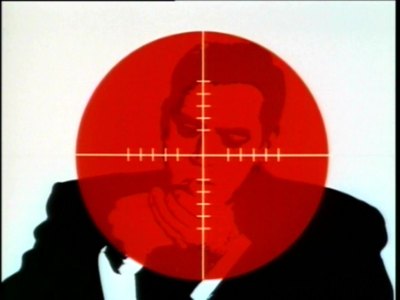
Here are the 26, one-hour episodes of the seven-disc box set, Ironside: Season 2, as described on their slimcases:
DISC ONE:
Shell Game (September 19, 1968)
Ironside matches wits with a master jewel thief as he protects a multi-million-dollar collection of gems.
Spilt Second To an Epitaph Parts 1 &2 (September 26, 1968)
In this special two-part episode, Ironside becomes the only witness to a murder just before entering the hospital for exploratory surgery. While watching out for his own safety, the Chief's hospital stay has an unexpected effect on the other patients.
The Sacrifice (October 3, 1968)
A highly respected Mexican-American detective is accused of murder and Ironside refuses to believe the circumstantial evidence which would convict him.
DISC TWO:
Robert Phillips vs. The Man (October 10, 1968)
Ironside is assigned to prove the innocence of an African-American militant accused of murder.
Desperate Encounter (October 24, 1968)
The death of an elderly hermit in a remote High Sierra cabin prompts his friend, Chief Ironside, to seek the killers at the risk of his own life.
I, The People (October 31, 1968)
A vicious television talk-show commentator receives death threats and Ironside is assigned the task of keeping him alive.
Price Tag: Death (November 7, 1968)
A former policeman vows to bring a murderer to justice after the death of a wino.
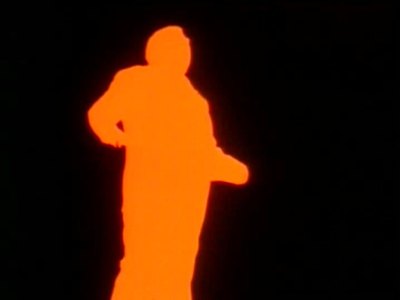
DISC THREE:
An Obvious Case of Guilt (November 14, 1968)
Ironside refuses to believe circumstantial evidence that a woman has murdered her philandering husband.
Reprise (November 21, 1968)
Wounded during a robbery, Officer Eve Whitfield hovers near death as her co-workers grieve, recalling their first meeting with the society girl before she joined the police force.
The Macabre Mr. Micawber (November 28, 1968)
Ironside tries to save a crotchety servant from a murder accusation by solving a crime involving a clever mynah bird.
Side Pocket (December 5, 1968)
Ironside is determined to save a young man from a life as a pool shark.
DISC FOUR:
Sergeant Mike (December 2, 1968)
A police dog, apparently the sole witness to a murder, helps Ironside find the killer.
In Search of an Artist (January 2, 1969)
Ironside searches for a talented artist, accused of murder, convinced his "death" is a phony.
Up, Down, and Even (January 9, 1969)
Ironside is heartbroken when Eve Whitfield's niece is arrested on narcotics charges.
Why the Tuesday Afternoon Bridge Club Met on Thursday (January 23, 1969)
Ironside is embarrassed by an elderly aunt who becomes an amateur detective when a card-playing friend disappears.
DISC FIVE:
Rundown on a Bum Rap (January 30, 1969)
Mark Sanger tries to equate his night school law studies with a real-life situation.
The Prophecy (February 6, 1969)
A newspaper columnist with a gift of prophecy warns Ironside that an art theft will endanger his life.
A World of Jackals (February 13, 1969)
The maid of a retired movie star sets Ironside on the trail of a kidnapper and possible murderer.
And Be My Love (February 20, 1969)
Socialite/policewoman Eve Whitfield falls in love with a columnist she suspects of robbery.
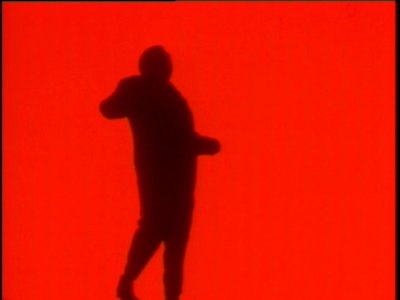
DISC SIX:
Moonlight Means Money (Februrary 27, 1969)
Det. Sgt. Ed Brown is suspended from duty when an off-duty friend involves him in a shooting.
A Drug on the Market (February 27, 1969)
An attractive widow hears mysterious voices threatening her life, but her family tells Ironside she's hallucinating.
Puzzlelock (March 13, 1969)
Ironside must discover a weak link in the perfect alibi of a police-trained slayer.
DISC SEVEN:
The Tormentor (March 27, 1969)
An extortionist threatens a baseball pitcher and his family unless $100,000 is paid.
A Matter of Love and Death (April 3, 1969)
Ironside and his staff track down a criminal abortionist, using Eve Whitfield as bait.
Not With a Whimper, But a Bang (April 10, 1969)
Ironside and the Army Bomb Squad join forces to seek the identity of a bomber who terrorizes a college campus.
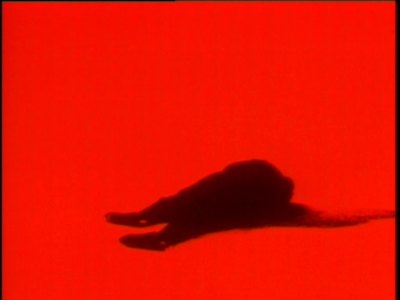
The DVD:
The Video:
I was slightly disappointed by the full screen, 1.33:1 video image for Ironside: Season 2. A generally soft picture, with at times slightly faded colors, indicated to me that nobody went back to source materials (or they didn't clean them up); these often look like very good VHS transfers.
The Audio:
The Dolby Digital English mono audio mix exactly recreates the original broadcast presentation (and that Quincy Jones theme kicks ass). There are no close-captioning options.
The Extras:
There are no extras for Ironside: Season 2.
Final Thoughts:
Tough, complex mysteries accompany the exploration of then-contemporary social ills in Ironside: Season 2, a terrific meat-and-potatoes detective series starring Raymond Burr as TV's first disabled hero. This is solid craftsmanship, the kind that use to be taken for granted on network TV back in the late 1960s. I highly recommend Ironside: Season 2.
Paul Mavis is an internationally published film and television historian, a member of the Online Film Critics Society, and the author of The Espionage Filmography.


|
| Popular Reviews |
| Sponsored Links |
|
|
| Sponsored Links |
|
|
| Release List | Reviews | Shop | Newsletter | Forum | DVD Giveaways | Blu-Ray | Advertise |
|
Copyright 2024 DVDTalk.com All Rights Reserved. Legal Info, Privacy Policy, Terms of Use,
Manage Preferences,
Your Privacy Choices | |||||||









